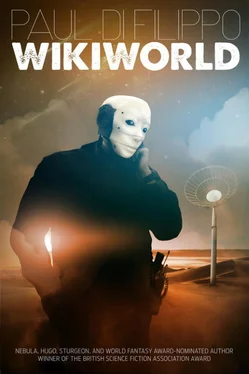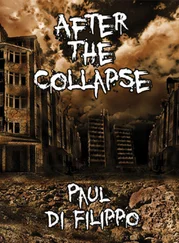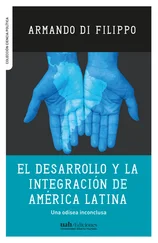Paul Di Filippo - WikiWorld
Здесь есть возможность читать онлайн «Paul Di Filippo - WikiWorld» весь текст электронной книги совершенно бесплатно (целиком полную версию без сокращений). В некоторых случаях можно слушать аудио, скачать через торрент в формате fb2 и присутствует краткое содержание. Город: Toronto, Год выпуска: 2013, ISBN: 2013, Издательство: ChiZine Publications, Жанр: Фантастика и фэнтези, на английском языке. Описание произведения, (предисловие) а так же отзывы посетителей доступны на портале библиотеки ЛибКат.
- Название:WikiWorld
- Автор:
- Издательство:ChiZine Publications
- Жанр:
- Год:2013
- Город:Toronto
- ISBN:978-1771481557
- Рейтинг книги:4 / 5. Голосов: 1
-
Избранное:Добавить в избранное
- Отзывы:
-
Ваша оценка:
- 80
- 1
- 2
- 3
- 4
- 5
WikiWorld: краткое содержание, описание и аннотация
Предлагаем к чтению аннотацию, описание, краткое содержание или предисловие (зависит от того, что написал сам автор книги «WikiWorld»). Если вы не нашли необходимую информацию о книге — напишите в комментариях, мы постараемся отыскать её.
WikiWorld — читать онлайн бесплатно полную книгу (весь текст) целиком
Ниже представлен текст книги, разбитый по страницам. Система сохранения места последней прочитанной страницы, позволяет с удобством читать онлайн бесплатно книгу «WikiWorld», без необходимости каждый раз заново искать на чём Вы остановились. Поставьте закладку, и сможете в любой момент перейти на страницу, на которой закончили чтение.
Интервал:
Закладка:
“Still, the world isn’t perfect yet. There’s bad people out there who wouldn’t hesitate—”
“Mom, I also got my concealed weapons licence.”
Mom had a technical interest in weapons, after hosting so many SCA tournaments and live-action RPG events. “Really? What did you train on?”
“Nothing fancy. Just a standard blaster.”
I didn’t tell Mom that I had picked a blaster because on wide-angle setting the geyser of charged particles from the mini-cyclotron in the gun’s handle totally compensated for my lack of aiming abilities. But I suspected she knew anyhow.
Mom got up from her chair and gave me a big hug. “Well, all right, Max, if this is really what you’ve got your heart set on. Just go out there and uphold the Moritz name.”
So that’s how, on August 16, 1970 (Hugo Gernsback’s eighty-sixth birthday, by coincidence; I recall watching the national celebration via public spy-ray), I moved out of the family home and hung up my shingle in a cheap office on McCay Street in Centropolis.
Now, five years later, after a somewhat slow start, I had a flourishing little business, mostly in the area of thwarting industrial espionage.
All Mom’s fears about me getting into danger had failed to come true.
Until the morning Polly Jean Hornbine walked through the door.
Business was slow that day. I had just unexpectedly solved a case for ERB Industries faster than I had anticipated. (The employee dropping spoilers on the ansible-net about ERBI’s new line of Tarzan toys had been a drone in the shipping department.) So I had no new work immediately lined up.
I was sitting in my office, reading the latest copy of Global Heritage magazine. I had always been interested in history, but didn’t have much Copious Spare Time these days to indulge in any deep reading. So the light-and-glossy coverage of GH provided a fast-food substitute.
I skipped past the guest editorial, a topical poem written by Global Data Manager Gene McCarthy himself. Where he found the time to churn out all these poems while shepherding the daily affairs of billions of people around the planet, I had no idea. Everyone else, myself included, bright and ambitious as one might be, looked like a lazy underachiever next to our GDM.
Beyond the editorial, the first article was a seventy-fifth anniversary retrospective on President Hearst’s first term of office, 1901–1905. Even though the material was mostly familiar, it made for a lively, almost unbelievable story: the story of a personal transformation so intense that it had completely remade, first, one man’s life, and then the collective life of the whole world.
Few people recalled that William Randolph Hearst had been a money-grubbing, war-mongering, unscrupulous newspaper publisher in the year 1898. A less likely person to become a pacifist politician and reformer would be hard to imagine. But there was a key in the rusty heart of the man, a key that would soon be turned.
And that key was Hearst’s son.
In 1879, at age twenty-six, Hearst had been vacationing in England. There, through mutual friends, he met a poor but beautiful woman named Edith Nesbit, aged twenty-one. The American and the Englishwoman fell in love and married. The couple returned to America. The next year saw the birth of their son, George Randolph Hearst.
In 1898, spurred on by his father’s jingoist rhetoric, the teenaged boy enlisted in the Army and went off to Cuba to fight in the very conflict his father was so ardently promoting, the Spanish-American War.
And there young George Randolph Hearst died, most miserably, on the point of a bayonet and subsequent peritonitis.
The death of their son first shattered, then galvanized William and Edith. Recanting all his past beliefs, Hearst vowed on his son’s grave to use all his skills and resources to bring an end to armed conflict on the planet. A titanic task. But he would be aided immensely by Edith. Her hitherto undisclosed writing talents and keen political sensibilities were brought to their joint cause.
In early 1899, Hearst and Edith formed the US branch of the Fabian Society, based on the parent UK organization that Edith had ties to. Backed by his media empire, Hearst ran a feverish, spendthrift campaign for the Presidency of the United States under that banner, and indeed defeated both McKinley and Bryan.
And that’s when Hearst started changing the world—
My robot annunciator interrupted my downtime reading then. “Chum Moritz, you have a client in the reception room.”
I swung my feet off my desk, and checked my appearance in a mirror hanging on the back of the door to reception.
My blue T-shirt bearing the image of Krazy Kat and Ignatz with the legend “Hairy, man!” was relatively clean. A small cluster of pinback buttons on my chest displayed the logos or faces of Green Lantern, Frank Buck, Lil Abner, Les Paul, Freeman Dyson, Dash Hammett, Bunny Yeager, Jean Harlow (still gorgeous at age 64), and the Zulu Nation. The pockets of my khaki cargo shorts were stuffed with the tools of my trade. My high-top tennis shoes were fresh kicks.
There was nothing I could do about my perpetually unruly cowlick or thin hairy shanks, so out I went.
A pretty woman under thirty—roughly my own age, stood up as I entered. Her thick auburn hair crested at her shoulders and curled inward and upward, and her wide mouth was limned in that year’s hot colour, Sheena’s Tiger Blood. She wore a green short-sleeved cashmere top that echoed her green eyes, and a felted poodle skirt that featured a snarling Krypto. Black tights, ballet slippers. She looked like a page of Good Girl Art by Bergey come to life.
She extended her hand forthrightly, a sombre expression on her sweet face. “My name’s Polly Jean Hornbine, and I’m here because the police don’t believe someone murdered my father.”
Her grip was strong and honest. I got a good feeling from her, despite her unlikely introductory claim. “Let’s go into my office, Ms. Hornbine.”
“Call me PJ, please. That’s—that’s what Dad—”
And then she began to weep.
Putting my arm around her slim shoulders, I conducted her into my office, got her some tissues and a spaceman’s bulb of diet Moxie (I took a Nehi for myself out of the Stirling-engine fridge), and had her sit. After a minute or so, she had composed herself enough to tell me her story.
“My father is—was—Doctor Harold Hornbine. He was head of pediatric surgery at David H. Keller Memorial. Until he was murdered! The authorities all claim he died of natural causes—heart failure—but I know that’s just not true!”
“What leads you to believe his death was murder, PJ?”
“Dad had just undergone his annual physical, and his T-ray charts revealed he had the physiology of a man much younger. He followed the Macfadden-Kellog Regimen religiously. All his organs were in tip-top shape. There was no way his heart would just stop like it did, without some kind of fatal intervention.”
“An autopsy—”
“—showed nothing!”
This woman’s case was starting to sound more and more delusional. I tried to reason with her gently. “Even with current diagnostic technology, some cardiac conditions still go undetected. For instance, I was just reading—”
“No! Listen to me! I might have agreed with you, except for one thing. Just days before Dad died he confided in me that he had discovered a scandal at the hospital. Something in his department that had much more widespread implications. He claimed that the wrongdoing at Keller would implicate people all the way up to the GDM himself!”
“I find that hard to believe, PJ. In nearly thirty years, Global Data Management hasn’t experienced any scandal worse than the use of some public monies to buy a few first editions for the private libraries of the occasional greedy sub-manager. And even that was resolved with simple tensegrity counselling. No, the GDM is just too perfect a governmental system to harbour any major glitch—especially not something that would involve murder!”
Читать дальшеИнтервал:
Закладка:
Похожие книги на «WikiWorld»
Представляем Вашему вниманию похожие книги на «WikiWorld» списком для выбора. Мы отобрали схожую по названию и смыслу литературу в надежде предоставить читателям больше вариантов отыскать новые, интересные, ещё непрочитанные произведения.
Обсуждение, отзывы о книге «WikiWorld» и просто собственные мнения читателей. Оставьте ваши комментарии, напишите, что Вы думаете о произведении, его смысле или главных героях. Укажите что конкретно понравилось, а что нет, и почему Вы так считаете.










